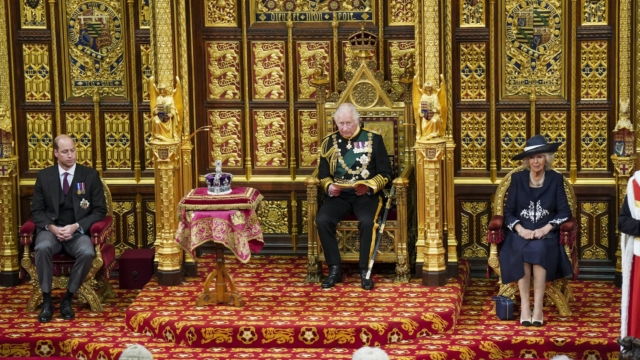Attached a copy of the lobby pack that supports the Queen’s speech. Here are some…

COVID-19 Update 14th July 2021
The Move to Step 4
Following yesterday’s announcement confirming the move to Step 4 of the Roadmap on 19th July, the Government has published top-line guidance which will be followed-up with more detailed guidance shortly. The main points in the top line guidance are:
-
- All remaining limits on social contact (currently 6 people or 2 households indoors, or 30 people outdoors) will be removed and there will be no more restrictions on how many people can meet in any setting, indoors or outdoors.
- All settings will be able to open, including nightclubs. Large events, such as music concerts and sporting events can resume without any limits on attendance or social distancing requirements.
- All restrictions on life events such as weddings, funerals, bar/bat mitzvahs and baptisms will be removed, including the remaining restrictions on the number of attendees. There will be no requirement for table service at life events, or restrictions on singing or dancing.
- COVID-status certification will not be required in law as a condition of entry for visitors to any setting. Organisations are already able to ask visitors for proof of COVID-status, as long as they meet existing legal obligations including under equality law. The Government is providing a way for individuals to easily demonstrate their COVID-status. This can be achieved by completion of a full vaccine course, a recent negative test, or proof of natural immunity – through the NHS COVID Pass on the NHS app.
- The legal requirements to wear a face covering will be lifted in all settings. To help reduce the spread of COVID-19, published guidance will advise that wearing a face covering will reduce your risk and the risk to others, where you come into contact with people you don’t normally meet in enclosed and crowded spaces.
- Social distancing rules (2 metres or 1 metre with additional mitigations) will be lifted. You should continue to consider the risks of close contact with others, particularly if you are clinically extremely vulnerable or not yet fully vaccinated. Social distancing will only be required in limited circumstances: ports of entry for passengers between disembarkation and border control in order to manage the risk of Variants of Concern being transmitted between individuals; and people who are self-isolating should also continue to socially distance from others, particularly where they have had a positive test. Health and care settings will continue to maintain appropriate infection prevention and control processes as necessary and this will be continually reviewed. Guidance will be updated based on the latest clinical evidence this summer.
- For individual settings where the risks of rapid spread are particularly acute, Directors of Public Health, in consultation with setting operators and relevant departments, will be able to advise that social distancing is put in place if necessary to control outbreaks. This should be targeted, time limited, and apply to settings characterised by enclosed and vulnerable communities such as prisons, immigration removal centres and homeless shelters.
- It is no longer necessary for Government to instruct people to work from home. Employers can start to plan a return to workplaces.
- Regulations that place COVID-secure requirements on businesses, including table service, and distancing between tables, will be lifted. ‘Working Safely’ guidance will be updated to provide examples of sensible precautions that employers can take to reduce risk in their workplaces. Employers should take account of this guidance in preparing the risk assessments they are already required to make under pre-pandemic health and safety rules.
- Businesses must not require a self-isolating worker to come to work, and should make sure that workers and customers who feel unwell do not attend the setting.
- Businesses will be encouraged to ask staff and customers to clean their hands regularly and clean surfaces that people touch regularly. The Government will provide guidance on how businesses can reduce unnecessary contact in the workplace, where it is practical. Operators will still be encouraged to use outside space where practical, and to consider the supply of fresh air to indoor spaces. Carbon dioxide (CO2) monitors could be used to help identify where a space is poorly ventilated with businesses encouraged to take steps to improve ventilation if CO2 readings are consistently high.
- Businesses will be encouraged to display QR codes for customers to check in using the NHS COVID-19 app, to support NHS Test and Trace, although it will no longer be a legal requirement.
- The Government will change the controls that apply in early years, schools, colleges and higher education institutions to maintain a baseline of protective measures while maximising attendance and minimising disruption to children and young people’s education. The Government’s intention is that from step 4 children will no longer need to be in consistent groups (‘bubbles’), and early years settings, schools or colleges will not be required to routinely carry out contact tracing, which will help to minimise the number of children isolating. Contact tracing in specific educational settings would only be triggered if deemed necessary in response to a local outbreak.
- The Government also intends to exempt under 18s who are close contacts of a positive case from the requirement to self-isolate, in line with the approach for those who are fully vaccinated (as set out below). Further detail will be published in due course and the changes are likely to come into effect later in the summer. There will be no restrictions on in-person teaching and learning in universities.
At the same time as removing the restrictions noted above, the Government is keeping in place key protections
-
- testing when you have symptoms and targeted asymptomatic testing in education, high risk workplaces and to help people manage their personal risk.
- isolating when positive or when contacted by NHS Test and Trace or when advised to by the NHS COVID-19 app.
- border quarantine: for all arriving from red list countries, and for those people arriving from amber list countries, other than those UK residents fully vaccinated in the UK vaccine programme.
- cautious guidance for individuals, businesses and the vulnerable whilst prevalence is high including:
- whilst Government is no longer instructing people to work from home if they can, Government expects and recommends a gradual return over the summer;
- Government expects and recommends that people wear face coverings in crowded areas such as public transport
- being outside or letting fresh air in; and
- minimising the number, proximity and duration of social contacts.
- encouraging and supporting businesses and large events to use the NHS COVID Pass in high risk settings to help to limit the risk of infection. The Government will work with organisations that operate large, crowded settings where people are likely to be in close proximity to others outside their household to encourage the use of the NHS COVID Pass. If sufficient measures are not taken to limit infection, the Government will consider mandating the NHS COVID Pass in certain venues at a later date
Guidance For Visa Applicants and Temporary Residents
The Home Office guidance for visa applicants and temporary residents has been updated to say that If people who obtained a Returning Resident visa because their Indefinite Leave to Remain lapsed on or after 24 January 2020 , but were unable to return to the UK due to travel restrictions in place relating to coronavirus, may be eligible for a refund of their visa fee by emailing CovidRRR@fco.gov.uk.

